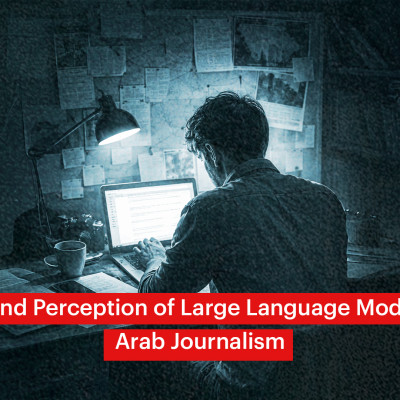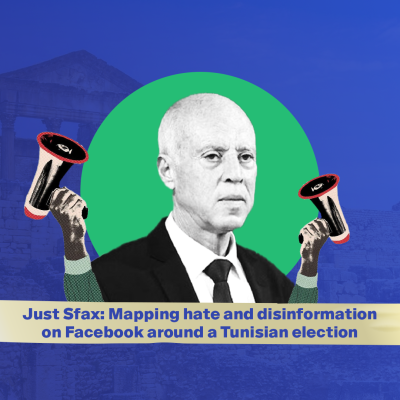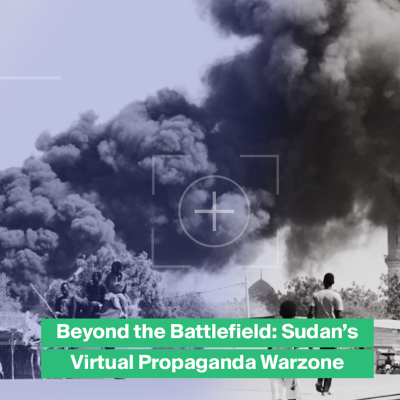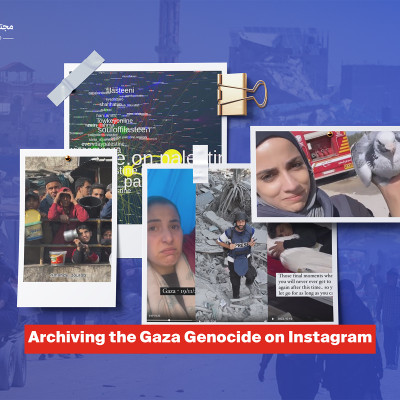Dr. Donia Tarek Abdelwahab Mohamed is an Assistant Professor at Canadian International College, Faculty of Mass Communication – Broadcasting Department. You can reach her at [email protected].
Gendered Disinformation During COVID-19 in Egypt: Impact on Women's Health and Rights
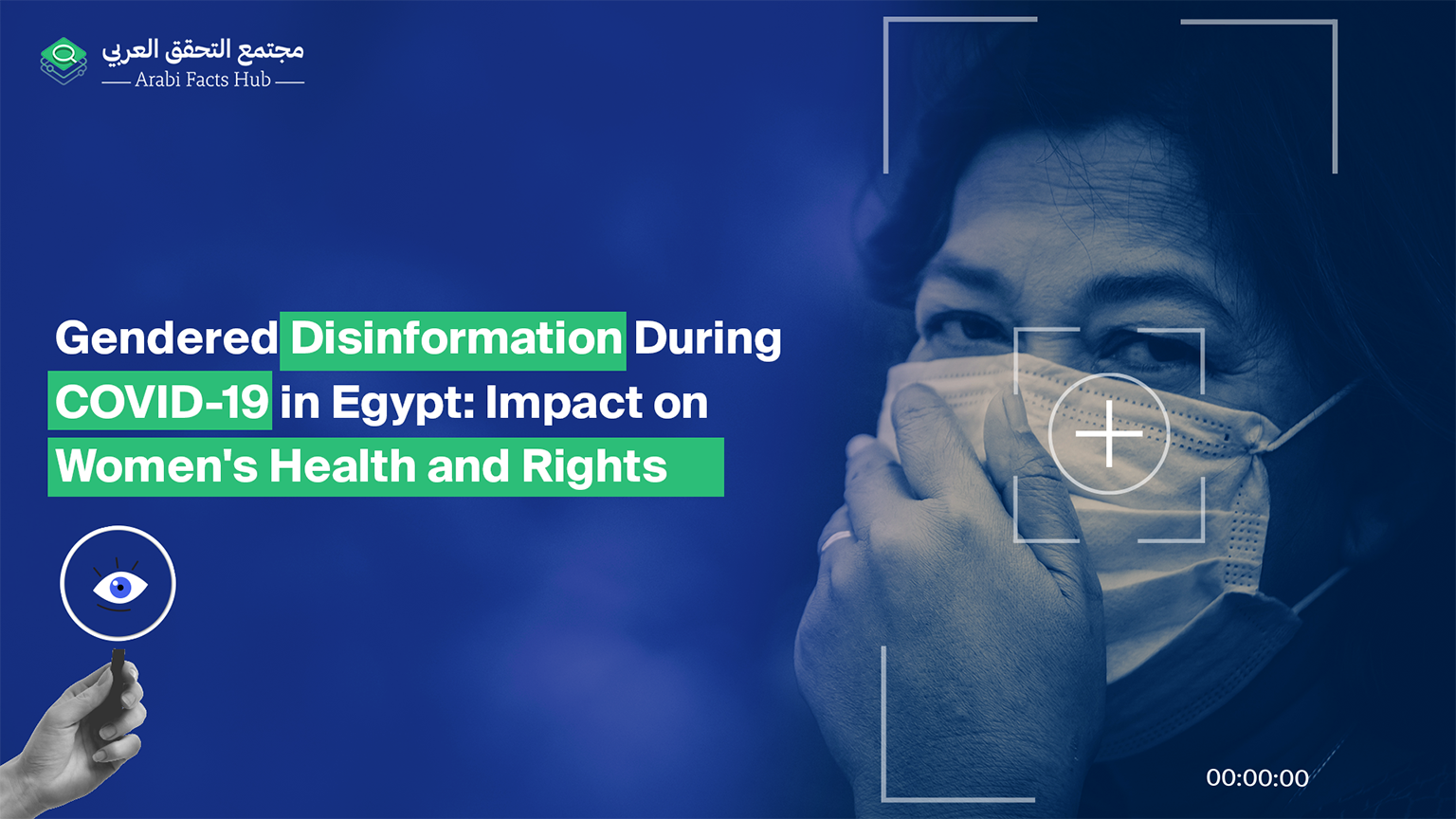
The COVID-19 pandemic unleashed an unprecedented wave of disinformation that impacted global health responses and public trust. This phenomenon was particularly pronounced in Egypt, where gendered disinformation narratives emerged, significantly affecting women's health decisions and social roles. The World Health Organization emphasized that vulnerable populations, especially women, faced heightened risks associated with health misinformation during the pandemic. The false narratives surrounding vaccination and fertility, which not only distorted public perception but also contributed to long-term health consequences for women, created gendered dimensions of COVID-19 disinformation in Egypt. Disinformation narratives shaped women's health choices and reinforced existing gender inequalities, exposing the need for gender-sensitive health communication strategies to combat misinformation in future public health crises.
The spread of gendered disinformation in Egypt
As vaccines became available in early 2021, a surge of rumors and false claims about their safety emerged, particularly concerning women. Arabi Facts Hub’s (AFH) extensive database revealed alarming trends on platforms like Facebook and WhatsApp, where posts asserting that vaccines could cause infertility proliferated. For instance, one widely shared post in January 2021 claimed, without scientific backing, that "COVID-19 vaccines contain chemicals that damage reproductive organs." This narrative quickly gained traction, with thousands of shares, particularly in rural communities with limited access to accurate health information. The Egyptian fact-checking platform Misbar documented similar claims, illustrating the challenges faced in combating misinformation in a socio-political landscape where trust in government sources is often tenuous.
In the Egyptian cultural context, traditional views on family and motherhood make women particularly susceptible to disinformation narratives that link vaccines to reproductive health concerns. This vulnerability is exacerbated in rural areas, where societal norms often prioritize women’s roles as caregivers and mothers, amplifying fears about any potential threat to fertility. Sociologists and health experts emphasize that such misinformation exploits existing anxieties about women’s health and autonomy, complicating the efforts of public health campaigns aimed at ensuring accurate information dissemination.
In a society where women’s identities are closely tied to their roles within the family, misinformation about health can have profound implications. The intertwining of health misinformation with deeply ingrained cultural beliefs creates a fertile ground for disinformation to flourish, making it increasingly challenging to counteract its influence effectively.
The trajectory of COVID-19 misinformation closely mirrored the announcements and actions taken by the Egyptian government regarding vaccination policies. Following the introduction of vaccines, narratives shifted from the dangers of COVID-19 to the perceived risks associated with vaccination. The Egyptian Ministry of Health reported that in certain rural governorates, vaccination rates among women dropped to approximately 25% lower than those of men. This statistic not only highlights the spread of misinformation, but also points to a critical gap in healthcare access that has lasting implications for women’s health in these regions.
The consequences of this misinformation were dire. Women who avoided vaccinations due to misinformation often neglected other essential healthcare services. A report by the Maternal and Child Health department at the Egyptian ministry of health and populations in 2022 indicated a 15% decline in maternal health check-ups in rural areas during the early months of 2021, directly linked to vaccine hesitancy fueled by false narratives. This decline in healthcare access had significant repercussions, resulting in increased complications in maternal health. For instance, healthcare providers reported a rise in pregnancy-related issues, such as gestational diabetes and preeclampsia, due to delayed prenatal consultations and inadequate postnatal care.
In addition to adverse health outcomes, the spread of misinformation reinforced existing gender inequalities and societal expectations surrounding women’s roles. The belief that vaccines could negatively impact fertility served to further restrict women’s autonomy, compelling them to prioritize family responsibilities over their health. In rural areas, where traditional gender norms are deeply rooted, women faced increased pressure to conform to societal expectations, which discouraged them from seeking medical care.
Moreover, the economic implications of the pandemic exacerbated existing inequalities. Many women in Egypt, particularly in the informal labor sector, experienced job losses or reduced hours during the pandemic, placing additional burdens on them to manage household responsibilities. Misinformation that discouraged healthcare access further compounded these challenges, limiting women’s ability to seek necessary medical attention while juggling their multiple roles as caregivers and workers.
The impact of COVID-19 disinformation on women’s health and rights
The COVID-19 pandemic has caused unprecedented global disruption, but its impact has been even more profound in countries like Egypt, where misinformation surrounding the virus has further exacerbated vulnerabilities, particularly among women. Disinformation — whether spread through social media, word-of-mouth, or sometimes even mainstream media — has shaped public perception and influenced critical decisions regarding health policies, women's rights, and the access to essential services.
Throughout the pandemic, disinformation regarding COVID-19 has disproportionately affected women in Egypt. Misleading claims about the virus, its transmission, and vaccines often fail to consider women's specific health needs and concerns, leading to a reduction in access to health care, and in some cases, an outright denial of essential services for women.
In Alexandria, a woman with high-risk pregnancy complications delayed seeking medical intervention after hearing a viral story that hospitals were “overrun with COVID-19 patients” and unable to properly attend to women’s health. This misinformation led to the loss of the pregnancy, highlighting the dangerous consequences of unchecked disinformation.
The economic fallout of COVID-19 also disproportionately affected women in Egypt, particularly in rural areas, where disinformation about the virus compounded existing economic hardships. Women who were already marginalized in the workforce found themselves even more vulnerable due to the pandemic’s economic restrictions. These challenges were exacerbated by the false belief that healthcare services were "free" or "widely available," leading some women to forgo private care options or delay treatments.
In one case, in rural Upper Egypt, a woman who had been diagnosed with a chronic condition requiring regular treatment was convinced by friends and family that the virus was "not serious" enough to warrant taking her treatment on time. As a result, her health deteriorated, and she later faced long-term complications. This misinformation, fueled by both a lack of accessible healthcare resources and disinformation, resulted in preventable health issues.
The role of social media and misinformation amplification
Social media platforms played a pivotal role in the rapid dissemination of COVID-19 disinformation, particularly among women. Studies have shown that social media is a primary source of information for many individuals, with significant implications for health behavior. In Egypt, the prevalence of misinformation on platforms like Facebook and WhatsApp has been well-documented.
A survey conducted by the Egyptian Center for Public Opinion Research in 2022, found that over 60% of respondents relied on social media for health-related information during the pandemic. Among women, this figure was even higher, underscoring the critical need for accurate information tailored to their specific health concerns.
The algorithmic nature of social media further exacerbated the issue, as misinformation often outperformed credible sources due to its sensationalist content. Posts linking vaccines to infertility often generated higher engagement, making it challenging for public health officials to counter these narratives effectively. In many cases, women reported feeling overwhelmed by the sheer volume of conflicting information, leading to confusion and hesitancy around vaccination.
The gendered aspect of social media use must be acknowledged. Gendered disinformation not only affected individual health decisions but also shaped community dynamics and women’s social standing. Women, particularly in urban areas, utilized social media platforms not only for information but also for community building and support. However, the proliferation of misinformation created a hostile environment where accurate discussions about health could not thrive. This led to the marginalization of women’s voices in health conversations, reinforcing existing power imbalances.
Recommendations for addressing gendered disinformation
To combat the impact of gendered disinformation on women's health and rights in Egypt, a comprehensive approach is essential. This must include targeted education, community engagement, social media advocacy, and policy initiatives that foster a resilient information ecosystem. Empowering women to make informed health decisions requires both preventive measures and responsive strategies to address misinformation as it emerges.
1. Gender-sensitive health communication strategies:
Effective health communication must be tailored to the unique needs of women, addressing their specific concerns, roles, and cultural contexts. Public health campaigns should incorporate culturally relevant messaging that resonates with women’s lived experiences. Storytelling featuring local women sharing their vaccination journeys can humanize health messages, build trust, and alleviate fears. For example, the UN's podcast series in Egypt, aimed at combating COVID-19 misinformation, has demonstrated the power of personal narratives and localized content to reach diverse audiences.
Campaigns must use inclusive language, acknowledging women's roles not only as individuals but also as primary caregivers and community pillars. This approach emphasizes that vaccination is essential not just for women’s health, but for their families and communities. Collaborating with women to develop these materials enhances outreach and ensures that the messages reflect their needs and realities.
2. Engaging community leaders and influencers:
Community leaders and trusted figures play a pivotal role in shaping public opinion and health behaviors.
Programs should train these influencers on COVID-19 and vaccination strategies, helping them address specific concerns women may have. This training could enable them to facilitate safe, open discussions where women can express their worries. In addition, partnerships with local influencers, especially women with significant social media platforms, can amplify accurate health information and dispel myths.
Efforts to involve influential voices have seen success in other areas. For example, Egyptian social media campaigns involving local celebrities and health advocates have shown promise in countering misinformation. Extending such campaigns specifically to women’s networks could increase vaccine uptake and trust in health protocols.
3. Digital literacy and critical thinking:
Promoting digital literacy is crucial in empowering women to navigate and assess online information effectively. Interactive workshops that focus on media literacy — teaching women how to evaluate credible sources and recognize misinformation — could foster critical thinking. Practical exercises that analyze real social media posts and identify misinformation patterns would help participants develop autonomy in making informed health choices.
Additionally, developing accessible online resources, such as guides on recognizing misleading health claims, could equip women with the tools to make data-driven decisions. Some initiatives, like the UN's ongoing efforts to counter misinformation in Egypt, have highlighted the need for accessible digital platforms that provide accurate information, which could be scaled and tailored for women.
4. Enhancing access to accurate information:
To ensure women receive correct health information, dedicated helplines manned by trained health professionals are essential. These helplines could offer not only factual health advice but also emotional support to women who are anxious about the virus and vaccines. Multilingual dissemination of health information is crucial, given Egypt's linguistic diversity. Translating materials into regional dialects and maintaining simplicity in communication will ensure broader accessibility.
Such initiatives are already underway; organizations like UN Women and local health NGOs have been working on providing clear, accessible health messaging in Egypt. These efforts should be expanded to reach all communities, ensuring no woman is left behind due to language or literacy barriers.
5. Utilizing social media for positive messaging:
Given the influential role of social media in spreading both information and misinformation, targeted campaigns to counter disinformation are vital. Campaigns like “My Vaccination Story”, which encourage individuals to share positive vaccine experiences, could play a key role in reshaping public perception. Interactive Q&A sessions with healthcare professionals on platforms like Facebook or Instagram can also engage women directly, answering their questions and addressing concerns in real-time. These interactions not only provide accurate information but also build community trust.
However, there is a growing need to counter weaponized misinformation, where fake news is intentionally used to destabilize public health efforts. In some instances, disinformation campaigns are driven by political or ideological motives, undermining public trust in vaccines and government health measures. Addressing this challenge requires not only fact-based messaging but also vigilance and rapid responses to harmful narratives.
6. Policy advocacy and legislative measures:
Advocating for supportive policies that promote the accurate dissemination of health information during crises is crucial. Egypt already has penalties in place for the spread of fake news. Under laws passed in recent years, such as the 2018 anti-fake news law, individuals can face fines or imprisonment for intentionally spreading false information. However, critics argue that the law has been weaponized to suppress dissent and limit freedom of expression. Therefore, while penalties for misinformation exist, they are not always enforced in a way that protects public health without infringing on individual rights. The challenge remains to balance the need for accurate information with protecting freedom of speech.
Further legislative action should focus on specific penalties for misinformation that directly harms public health, particularly in relation to COVID-19 and vaccinations. In this regard, targeted enforcement of the laws that penalize harmful disinformation related to health could be an effective way to curb the spread of dangerous myths.
7. Monitoring and evaluation of misinformation:
Establishing a robust system to monitor misinformation and its effects on women’s health is essential. Regular surveys and research could provide valuable data on the scope of COVID-19 disinformation, identifying trends and guiding tailored interventions. This would allow policymakers and public health organizations to respond more effectively to emerging challenges.
Feedback mechanisms, where women can report misinformation or share their experiences, could help create a more resilient public health strategy. This two-way communication would not only provide insights into community-level challenges but also create a sense of ownership and involvement in combating misinformation.
8. Community empowerment initiatives:
Finally, empowering communities is essential to building resilience against misinformation. Support groups, particularly those organized around health issues, can provide spaces for women to share experiences and offer peer education. Organizing skill-building workshops focused on health advocacy will equip women with the knowledge to advocate for themselves and their communities. These efforts can help women play an active role in their health decisions and in promoting public health.
Such grassroots initiatives have been particularly effective in some regions of Egypt, where local organizations have trained women to become advocates for vaccination uptake in their communities. By expanding and scaling these initiatives, women-led advocacy can play a crucial role in combating disinformation at the local level.
Conclusion
The COVID-19 pandemic underscored the significant intersection of gender, health, and information in Egypt. The gendered disinformation surrounding COVID-19 vaccines has profound implications for women's health and rights, exacerbating existing inequalities and undermining their autonomy. As the world continues to grapple with the ongoing effects of the pandemic, prioritizing women’s health in public health discussions and policies is crucial. Egypt can work toward a more equitable future where all individuals have access to the information they need to make informed health choices.
